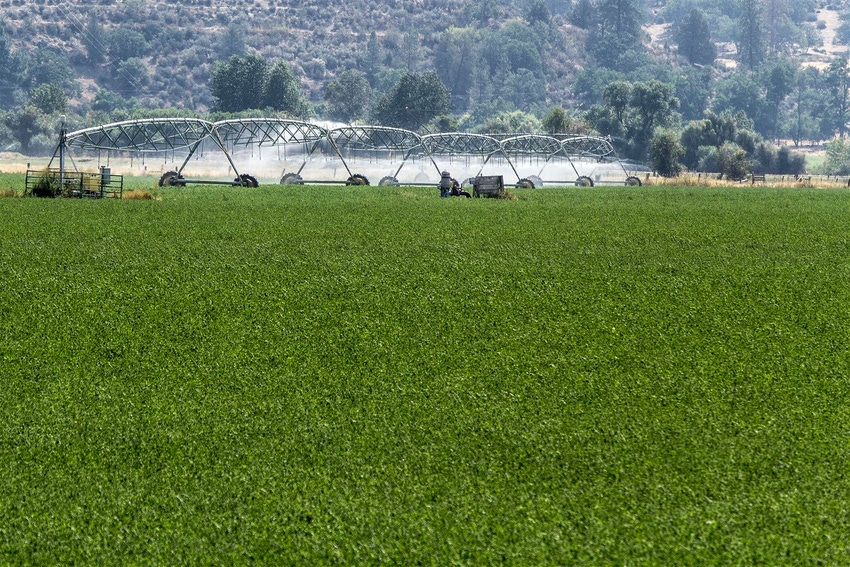November 12, 2014

A decision by US Department of Agriculture paves the way for commercialization of the second genetically-engineered (GE) trait in alfalfa in 2015 – one with a quality feature.
The USDA-Animal and Plant Health Inspection Service (APHIS) has declared a “FONSI” – finding of no significant impact for the KK179 trait in alfalfa, which confers reduced lignin levels in the plant, effective Nov. 10.
This formally deregulates the low lignin GE trait, which was developed by Forage Genetics International (FGI), Monsanto, and the Nobel Foundation.
The first GE trait, Glyphosate-resistant (Roundup Ready or RR) alfalfa was deregulated in 2005, halted due to a lawsuit for a four-year period, and again deregulated in 2011.
Substantial commercial acreage of RR alfalfa has been planted to date, especially in the western U.S. FGI reports that the first varieties containing the KK179 low lignin trait in alfalfa will also include the Roundup-Ready trait.
Essentially, APHIS has determined that KK179 alfalfa is unlikely to pose a plant pest risk. The full APHIS decision, including the environmental assessment can be viewed at the USDA-APHIS Alfalfa Decision Site.
KK179 alfalfa is engineered to have reduced levels of lignin when compared to conventional alfalfa.
Unlike RR alfalfa (which was a gene insertion from a bacteria), this trait was accomplished by the insertion of the CCOMT gene segments derived from alfalfa itself, resulting in a lower CCOMT protein expression, and a reduced synthesis of guaiacyl lignin (and thereby total lignin). FGI data has indicated higher levels of digestibility of Low Lignin Alfalfa compared with conventional lines when harvested at the same date.
Lignin is an important part of plant stems, conferring strength and upright growth habit. However, lignin is essentially indigestible by ruminants, and lignin concentration is relatively high in alfalfa compared with other forages.
Improving digestibility
High lignin concentrations is widely seen by nutritionists as a negative quality feature; whereas reduced lignin and higher digestibility is likely to increase the feeding value, milk production, and economic value from hay.
Additionally, since alfalfa growers frequently cut early to obtain high quality (but with lower yields), this trait may enable growers to delay harvests for days, increasing yields and harvest flexibility while maintaining quality.
In a related story in early October, Alforex Seeds (Dow Agrosciences) announced the release of a conventionally-bred low-lignin trait ‘Hi-Gest' in two different dormancy groups.
USDA-APHIS is the agency charged by Congress to conduct an environmental assessment to analyze and determine the potential environmental and social effects of GE crops. APHIS examines new biotech traits for safety in addition to monitoring invasive species, insects and diseases.
APHIS considered the following factors in their Environmental Assessment of the KK179 trait:
Concerns that KK179 will cross pollinate with other alfalfa varieties
Effects of KK179 on the physical environment
Potential for weakened plant defenses and susceptibility to disease (potential for higher pesticide application)
Human health effects from consuming GE crops
Impacts to pollinators
Potential economic impacts
Concerns about nutritional and feed safety of KK179 alfalfa
Non target effects of RNAi technology
Public comments were made in June and 177 comments received; 164 were supportive and 13 opposed, according to APHIS.
This decision petition is now available for a 60-day public comment period from Nov. 10 to Jan. 9. During that time, go to www.Regulations.gov and type “APHIS-2014-0076” into the search box to submit public comments and review the petition and other comments received.
You May Also Like




